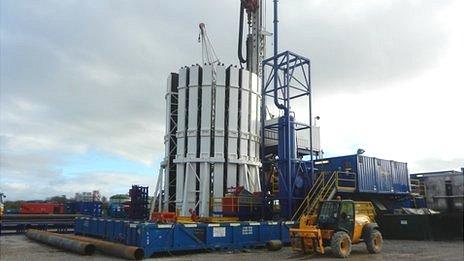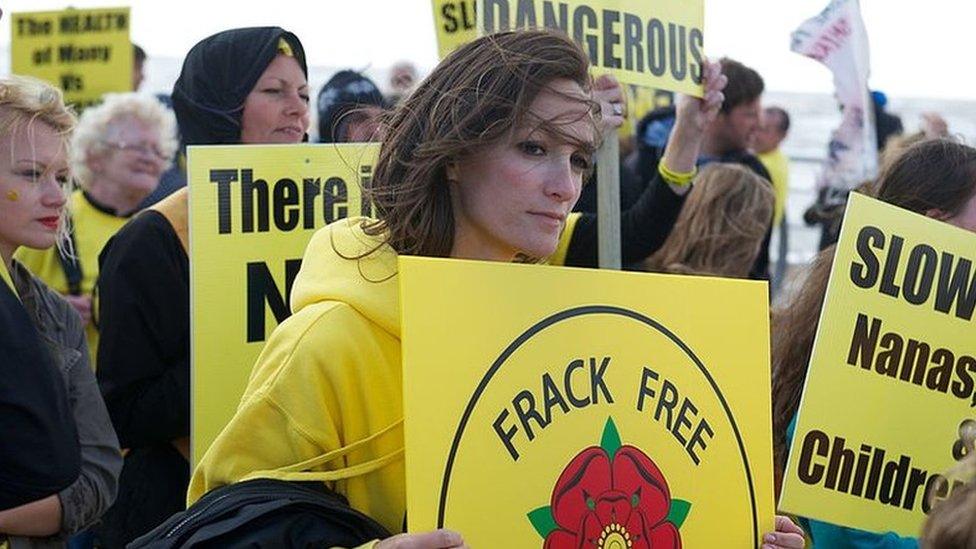Cuadrilla fracking delays over radioactive waste water
- Published
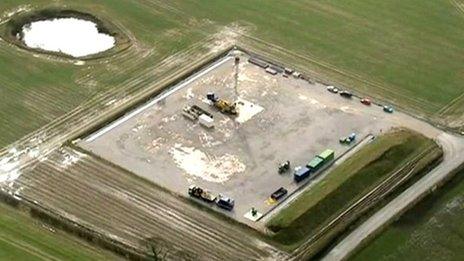
Two million gallons of waste water were produced at Preese Hall, Weeton
Energy company Cuadrilla has withdrawn applications for permits to frack in Lancashire after issues with radioactive waste.
Fracking produces large volumes of water contaminated with low level naturally-occurring radiation.
The Environment Agency (EA) said it would not grant a radioactive substances permit until it was sure the water will be disposed of safely.
Cuadrilla said it was preparing new permits to meet revised guidelines.
Fracking - or hydraulic fracturing - is a technique in which water and chemicals are pumped into shale rock at high pressure to extract gas.
When Cuadrilla Resources fracked at Preese Hall, Weeton the agency found traces of naturally-occurring uranium and thorium.
It also found levels of radium 90 times higher than naturally occurs in drinking water.
Cuadrilla pulled out of Preese Hall in December last year after fracking at the site was linked to two earth tremors.
Previous regulations classed the waste water as industrial effluent and Cuadrilla was legally authorised to discharge two million gallons into the Manchester Ship Canal after being processed at the Davyhulme treatment works in Trafford.
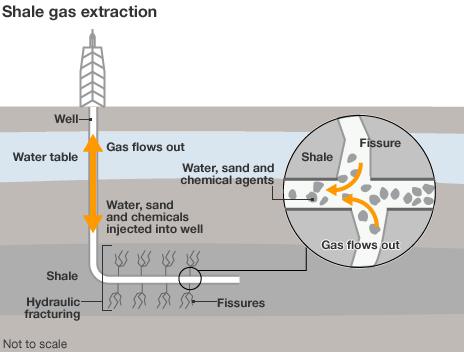
Flowback water is now classed as radioactive waste following European regulations which came in to force in October 2011.
Without a valid permit, the company can drill, but not frack and the operator and treatment works need a permit to safely dispose of it.
Cuadrilla said: "Following recent changes in the Environment Agency's guidance on permits and an ongoing review of our exploration programme, we have decided to withdraw the previous permit applications for our sites in Lancashire.
"We are preparing new permits and will provide further detail when we announce a number of proposed new exploration sites.
"We will need a radioactive substances permit to flow test any well after fracturing."
Trials are taking place with Remsol, a waste management firm in Preston, to reduce the radioactivity by 90% but it is understood this would involve moving large volumes of water out of the region in tankers.
Another report - by the Chartered Institution of Water and Environmental Management (CIWEM) indicated that treatment capacity should not represent a problem in the UK - a view shared by Caudrilla.
See the full story on BBC One's Inside Out North West on Monday 27 January at 19:30 GMT.
- Published24 January 2014
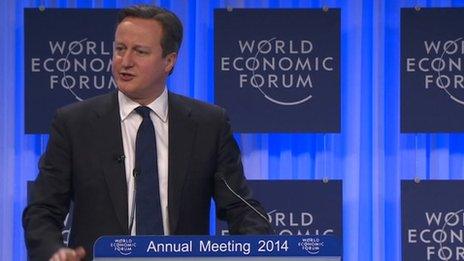
- Published17 December 2013
